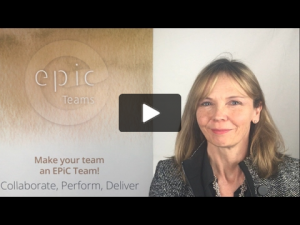

‘You can help your manager to help you by communicating when you notice a problem or oversight…’
In a recent Insight, I talked about the art of Managing Up. This Insight is about Delegating Up, which is slightly different in my view.
Let me define what I believe Delegating Up to mean. You are at work and something has landed on your desk that you:
a) Are not equipped/skilled to deal with
b) Don’t have the authority to deal with it
c) Don’t have the capacity/resources to deal with it
d) It is someone else’s job
This matter will have come to you either direct from your manager, or through another route.
These are typical circumstances where delegating up to your manager might be appropriate. So how do you do it effectively?
1. Objectivity
Your initial reaction may be to feel dumped on, frustrated, stressed, angry, resentful, anxious at the thought of taking on this task. Your physical and emotional discomfort is a great indicator for you. As soon as you feel it, ask yourself, why do you feel that way? Which of the 4 reasons above are causing you such discomfort? Or is it something else?
OK. So now you have identified the source of the problem. And in knowing that, you have objectivity. You can go to your manager with a clear head and purpose.
2. Communicate
Arrange an appropriate time (bearing in mind any deadlines) to have a conversation with your manager. The purpose: to share that something has landed on your desk that requires action and you are not sure if (a, b, c, d or another). You would appreciate help or guidance on how best to proceed.
This provides the initial opener for a useful conversation. Notice, that the language used brings you along side your manager, rather than being combative. Humans by their very nature like to help when they are needed and your manager is likely to want to help you.
Discussion
When you meet, this is your opportunity to share the problem with your manager as you see it, and round out the detail:
a) Lack the Skills
If you believe you are not equipped or skilled to deal with it, share your concerns with your manager. It may be that your manager can coach you through so that you feel confident and capable of taking on the matter yourself. Or, it may be that the manager will reassign the task to someone who is better equipped. This also opens the potential for discussion around future development. Is it a skill you need to develop? If so, you can put a plan together so that you are equipped next time around.
b) Lack the Authority
If you believe you don’t have the authority to undertake the task, this is something to discuss. Either you will need to be given the responsibility and support of the manager and business, or if that is not possible, hand the task back to your manager. Delegate up.
c) Lack Resources/Capacity/Time
If you are genuinely maxed out and you don’t have the resources or capacity to tackle the matter, you can explain the situation to your manager, outline what you currently have on your plate and what is the likely impact of this task on your other workload. Ask your manager to help you to decide on the most important tasks to prioritise, or reassign the task to a team member who has more capacity.
d) Not My Job
Finally, if the task belongs to someone else, you can ask your manager to reassign it to the correct person/department. It might be just as simple as sharing with your manager that you think it has been given to you incorrectly and ask for their help to ensure it is picked up by the right person/team so it can be properly actioned.
(I have shared more about why this is so important to you, your manager and the business in the attached video).
In Summary
Your manager is responsible for ensuring you are working to a manageable capacity on tasks that you are equipped for and paid to do. You can help your manager to help you by communicating when you notice a problem or oversight. This is far more constructive than taking on work-load that you shouldn’t be doing and either failing to deliver or busting a gut and resenting others.
I hope this has been a useful insight and offers a helpful strategy for when and how to Delegate Up appropriately.
If you like it and can see its value, please share your enthusiasm with your friends and colleagues so that they may receive Insights too.
To speak to one of our consultants, please call us on 00 44 1932 888 885.












